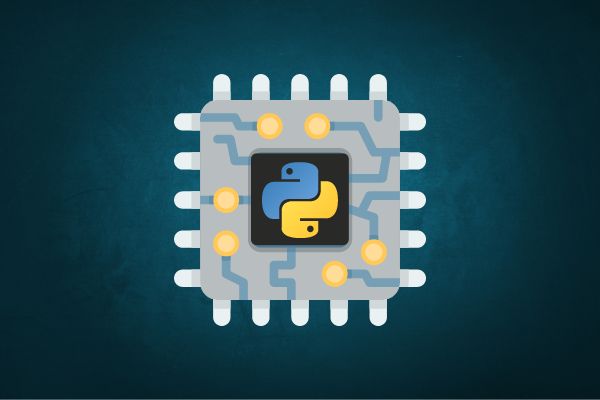Machine learning has a reputation for being one of the hardest topics to master in the technology field. Many programmers find it challenging and sometimes even confusing as to how things are being implemented.
However, readily available libraries, models, datasets, and code make it easy to build a project without having to understand the underlying theory and analysis behind machine learning.
In this article, we will discuss whether machine learning is hard to learn or not. Let’s dive right in.

Is Machine Learning Hard to Learn?
Machine learning can be hard to learn, especially for beginners. Some tutorials will teach you machine learning in a few hours and help you build models. But to understand the underlying concepts, you need to be patient and develop your coding, mathematical, and analytical skills.
Generally, programmers skip the underlying theory and jump directly into building machine learning models with the help of built-in libraries and tools. This can produce results for the moment. But in the long run, dealing with complex models can be confusing.
That doesn’t mean that machine learning is like rocket science. If you can build the right skills, you can easily become a machine learning expert with time and practice.
What Makes Machine Learning Hard?
- One of the main reasons why programmers are hesitant to enter into machine learning is the prerequisite of extensive coding knowledge. To be able to implement a machine learning model of your own requires high proficiency in coding.
- Machine learning programs scale to a distributive computing network when training massive data. To venture into the underlying mechanism, one must have the prerequisite knowledge of cloud, distributed computing, and distributed processing.
- The machine learning algorithms sometimes become increasingly difficult to understand and master as they increase in complexity.
- Machine learning requires proficiency in math skills as it is necessary to understand the implementation.
- Machine learning has found its implementation in a variety of fields. Due to this, selecting a subtopic to master can be tedious and confusing. Neural networks, deep learning, NLP, computer vision, speech processing, big data analysis, etc., are some of the topics that use machine learning.
- To become an expert in machine learning, a programmer needs to be familiar with a whole set of other topics like linear algebra, probability, statistics, calculus, performance metrics, etc.
- These prerequisite topics can take a lot of your learning time. For programmers wanting to learn it in a short period, it can prove to be difficult.
The Simplest Way to Get Started With Machine Learning
- The first and foremost step is to design a game plan to study machine learning from the basics. This includes studying math concepts like linear algebra, calculus, probability, statistics, etc. You can use resources like Khan Academy or other material available online.
- Once the game plan is created, it is important to devote adequate time to strengthening the foundation.
- To start with the coding part of machine learning, you need basic proficiency in a programming language. The most preferred language for machine learning is Python. Python contains a variety of inbuilt libraries and modules for machine learning. Hence it can be a wise choice to start learning Python for machine learning.
- You can find lots of free and paid resources online to learn Python. I have listed a few recommended courses to learn Python in this article. While learning Python, you can give preference to solving problems related to mathematics and data analysis.
- Once you have become fluent with this method of python coding, you will find it easier to create your projects. Build some projects and learn by implementing the concepts.
- If you have mastered Python, you can get started with building machine learning models with it. Pick a course or learning material for machine learning and start exploring Python libraries like numpy, pandas, matplotlib, seaborn, scikit-learn, tensorflow, keras, etc.
- Plenty of online resources are available in the form of books, online courses, web articles, and documentation. Even Google provides a Machine Learning Crash Course for machine learning enthusiasts and even novice programmers.
- Mastering machine learning can take months, and if it is to be pursued as a career, years of experience might be required. Hence, the learning process requires patience and perseverance.
- Constant practice and creating projects help a programmer achieve mastery in machine learning. Build some good-quality projects and create a portfolio. It will help you if you want to apply for a machine learning developer job.
- Find a machine learning expert and seek their help to clear doubts. You can also find a professional to mentor you along the learning process.
- After attaining a certain level of fluency in machine learning, you need to improve the quality of your projects. Accuracy and time of execution are a few assessment metrics that will set your project apart from numerous others.
- Participate in competitions and hackathons to know where you stand in terms of proficiency in machine learning. It will also improve your skills and act as a huge motivation to put more effort into your learning.
- Networking and communicating with a community of machine learning experts and enthusiasts will keep you motivated and updated, and it might also open up new learning opportunities.
- Participate in public forums and discussions related to machine learning, both online and offline. It can be the best source of machine learning-related news and ongoing works in your favorite sub-field of machine learning.
It Is Worth Learning Machine Learning?
Is machine learning worth the struggle? Definitely. If you are a programmer trying to explore machine learning out of interest or curiosity or trying to make it a career path, learning machine learning can prove to be beneficial in numerous ways.
Here are some benefits of learning machine learning:
- It helps build analytical skills. Data analysis using data representation techniques like visual representation improves your interpretation skills.
- Techniques like feature analysis and extraction can improve your understanding of data and its associated variables.
- The selection of appropriate algorithms to classify or cluster your data will test your problem-solving abilities.
- The future for machine learning is bright as numerous opportunities are popping up in various industries. It is a very viable career option and is worth it to learn.
- For programmers looking to switch careers, machine learning can be a great choice as the average salary for machine learning engineers is pretty high [Source].
Final Thoughts
Machine learning is an upcoming field finding its application almost everywhere, and learning it can be useful in numerous ways. Even if you are not looking to make a career out of it, it can still help you with your analytical and problem-solving abilities.
The difficulty in learning mostly depends on the learner’s mindset and the unwillingness to put effort into learning it.
Machine learning may look difficult at first for some people, but if it is learned systematically by building strong foundations, it can be a piece of cake.
I wish you the very best in your future coding endeavors. Happy coding!
Recent Posts
Modular programming is a software design technique that emphasizes separating the functionality of a program into independent, interchangeable modules. In this tutorial, let's understand what modular...
While Flask provides the essentials to get a web application up and running, it doesn't force anything upon the developer. This means that many features aren't included in the core framework....

